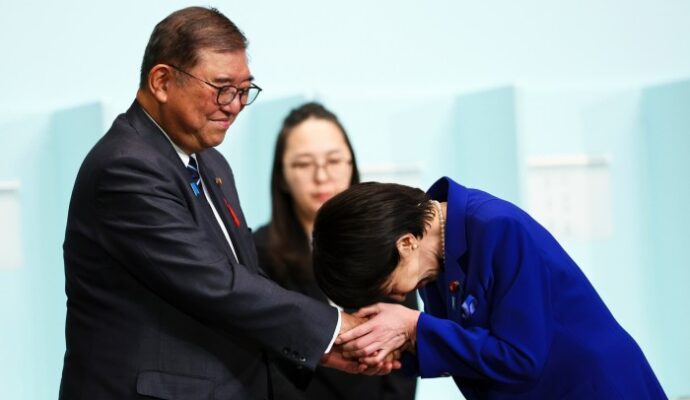Stay informed with free updates
Simply sign up to the Pharmaceuticals sector myFT Digest — delivered directly to your inbox.
AstraZeneca, Pfizer and other multinational drug companies have spent a record amount on medicines developed by Chinese biotechs this year, underscoring how Big Pharma is increasingly reliant on China even as the country faces US tariffs.
China has comprised 18 per cent of licensing deals globally for multinational companies so far this year, up from 17 per cent last year and its largest-ever share, according to a report this month from Jefferies. A third of the deal value came from China, also a record.
In these deals, a pharmaceutical company pays a Chinese biotech for exclusive rights to sell an early-stage drug, usually outside China. If the drug advances through trials, the Chinese companies can earn more.
The Trump administration is finalising unprecedented US tariffs for the global pharmaceutical sector. President Donald Trump said last week that these tariffs, which were proposed in April, could be unveiled by the end of July. In regulatory filings since April, pharmaceutical companies have warned shareholders that these “Section 232” tariffs pose a threat to profits.
While pharmaceutical companies are moving more manufacturing into the US, “from the tariffs standpoint, reshoring more of the [pharmaceutical] manufacturing won’t happen overnight”, said Mark McClellan, a former Food and Drug Administration commissioner who is now at Duke University.
“China is running ahead of the US” in biotechnology innovation, and that poses national security concerns for the US, he said.
“There are unquestionably some risks associated from a military standpoint and a biosecurity standpoint associated with the most advanced cellular and gene technologies.”
While pharmaceutical companies are spending billions of dollars on Chinese biotechs, they are arguing to the Trump administration that they do not have a big relationship with the country.

PhRMA, the drug industry lobbying group, said most pharmaceutical ingredients imported to the US came from Europe. AstraZeneca, in a May 7 letter to the Trump administration, said it only imported drugs from Europe. “AstraZeneca does not import medicines from China.”
The lobbyists and companies do not mention the Chinese licensing deals in their tariffs arguments. Among the big pharmaceutical companies, AstraZeneca has signed the most licensing deals with Chinese biotechs, at least $13.6bn of licensing deals with five companies so far this year, according to a July 15 Morgan Stanley report. In June, AstraZeneca announced a $5.2bn deal with Shijiazhuang-based CSPC Pharmaceuticals for multiple drug prospects.
US pharmaceutical companies AbbVie, Merck, Pfizer and Regeneron also signed multibillion-dollar licensing deals in the first half of 2025.
Pfizer signed the biggest Chinese licensing deal this year, a $6bn agreement with 3Sbio to develop a cancer drug. Pfizer said it planned to manufacture the drug in the US.
Pfizer declined to comment beyond chief executive Albert Bourla’s previous statements about the deal. AstraZeneca referred to its previous comments about US tariffs.
The multinational pharmaceutical companies are turning to China because they are facing lower drug prices and expiring patents on blockbuster drugs, said Jefferies.
Chinese drugmakers are also looking to expand overseas after companies were forced to cut prices for innovative drugs to qualify for China’s national medical insurance scheme, part of Beijing’s campaign to lower drug prices.
Meanwhile, a funding crunch in China’s biotech sector, which was particularly acute in 2024, has led companies to seek out deals with foreign groups to fund expensive clinical trials overseas.
Chinese biotechs have enjoyed booming share prices as a result, with the Hang Seng Biotech index returning 79 per cent so far this year, well ahead of the 24.6 per cent return on the city’s benchmark Hang Seng index.
Trump “likes sticks rather than carrots” to pressure pharmaceutical companies to lower US drug prices, said Kirsten Axelsen, a fellow at the American Enterprise Institute. But China is winning over the pharmaceutical companies by making drug development cheaper, she said. For example, clinical trials are finishing faster in China than in the US, she said.
“All this [pharmaceutical] money has gone into China because China has invested in their industry while the US government has not,” Axelsen said. “The ideal message for the [Trump] administration to hear is that when you invest in the biotech industry the world follows.”


